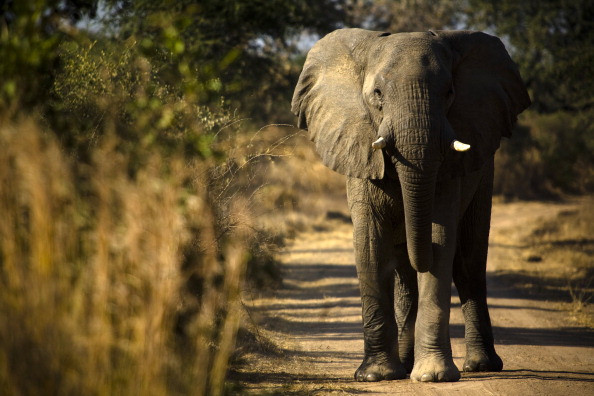Dark web not a hub of rare wildlife trade because standard routes are so poorly monitored

Rare wildlife species are the object of a large-scale illegal trade on the internet open marketplace, scientists have warned.
Preliminary research published in Conservation Biology, by the University of Kent, suggests that while consumers go on the so-called dark net to buy drugs, weapons or pornographic material, the illegal sale of rare species, or of their ivory, in the case of rhinos and elephant, takes place on well-known, open websites.
No activity on the dark net
To assess the extent of illegal wildlife online, scientists downloaded 9,852 items from the dark net. They analysed this material by looking for 121 keywords relating to wildlife trade, including 30 associated with elephant ivory trade.
The only trace of a wildlife trade they found was the sale of the Echinopsis pachanoi, also known as San Pedro cactus, that consumers often buy for its hallucinogenic properties.
Researchers believe that this very small amount of activity on the dark net relating to wildlife suggests that such a trade is marginal there, and negligible when compared to what is happening on the surface web.
According to the scientists, this is because laws protecting endangered species and preventing wildlife trade online are poorly enforced so traders do not feel the need to use the dark net to conduct the transactions anonymously.
Driving the trade underground
In recent years, bans on Ivory sales have been established by famous companies such as Google, eBay or Amazon, in moves welcomed by wildlife defence activists, but their strategies have not always been effective.
In 2013, for example, a report by the Environmental Investigation Agency said Amazon had allowed hundreds of adverts for illegal ivory sale. They have since then been taken down, but recently it was Yahoo's turn to be in the spotlight when it was accused of fuelling the extinction of elephants by allowing ivory trade on its auction website in Japan. Doubts therefore remain on whether these multinationals can really target all the illegal trade taking place every day.
Yet, scientists say that dealing with this problem is much more complex than just implementing bans and stricter regulation, as this strategy could also have unwelcome effects. It could eventually lead to the trade moving underground, and to a surge in commercial exchanges on the dark net, where sellers do not have to reveal their identities.
The study's authors want to carry out further research to better understand why the illegal trade of wildlife is still so common on the open marketplace, and what can be done to better regulate it without seeing renewed activity on the dark net.
"Brick and mortar stores"
However, the biggest worry of wildlife defence activists is not the Internet, whether the regular platforms used by the majority on the dark net, but in brick and mortar shops where people are exposed to wildlife products
"The dark net theory is interesting, but apart from collectors who want specific things, the vast majority of buyers get their products from stores that operate in plain sight. In terms of the volumes of products sold and of animals killed, stores are much more important that Internet", Teresa Telecky, from Humane Society International told IBTimes UK.
Unlike the study's authors, she believes closing loopholes in the regulation of illegal wildlife trade will not lead to a surge in demand on the dark net.
"Most buyers don't actively look for this products, but only buy them when they are shown to them. They would not have the idea to go look for ivory or rhino horns on such platforms", she concludes.
© Copyright IBTimes 2025. All rights reserved.






















